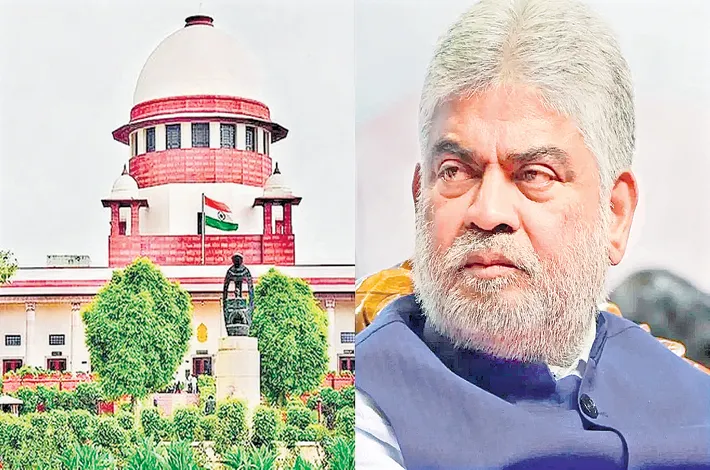The Importance of Traveling to Recharge Oneself
30-05-2025 12:00:00 AM

In today’s fast-paced world, where the demands of work, family, and technology create a constant buzz of activity, finding time to recharge is essential for mental, emotional, and physical well-being. One of the most effective ways to hit the reset button is through travel.
Traveling, whether it’s a weekend getaway or an extended journey across continents, offers a unique opportunity to break free from routine, gain new perspectives, and reconnect with oneself. Beyond the excitement of exploring new places, travel serves as a powerful tool for rejuvenation, fostering personal growth, reducing stress, and enhancing creativity. This article explores why traveling is vital for recharging and how it can transform one’s outlook on life.
Breaking the Monotony of Routine
Daily life often traps us in a cycle of repetitive tasks—commuting to work, meeting deadlines, and managing household responsibilities. Over time, this monotony can lead to burnout, a state of emotional, mental, and physical exhaustion. Traveling disrupts this cycle by introducing novelty and excitement. Visiting a new destination, whether it’s a bustling city, a tranquil beach, or a remote mountain village, forces us to step out of our comfort zones.
This shift stimulates the brain, encouraging it to process new sights, sounds, and experiences. According to a 2018 study published in the Journal of Environmental Psychology, exposure to new environments can boost cognitive flexibility, helping individuals think more creatively and adapt to challenges.
When we travel, we engage with the world in a way that daily life rarely allows. Trying new foods, navigating unfamiliar streets, or learning a few words in a foreign language activates our senses and rekindles curiosity. This break from routine doesn’t just feel refreshing—it rewires our brains to approach life with renewed energy. Even a short trip can provide the mental reset needed to return to daily responsibilities with a clearer mind and a lighter heart.
Reducing Stress and Improving Mental Health
Chronic stress is a modern epidemic, linked to anxiety, depression, and a host of physical ailments. Traveling offers a powerful antidote by providing an escape from the pressures of everyday life. A 2013 study by the American Psychological Association found that vacations significantly reduce stress levels, with participants reporting lower anxiety and improved mood after time away. Whether it’s the soothing sound of waves on a tropical shore or the awe-inspiring view from a mountaintop, natural and cultural environments encountered during travel have a calming effect on the mind.
Moreover, travel encourages mindfulness, the practice of being fully present in the moment. When exploring a new destination, we’re more likely to notice the details—the vibrant colors of a market, the scent of fresh coffee in a café, or the warmth of a local’s smile. These moments of presence help quiet the mental chatter that often fuels stress. For example, a solo trip to a quiet countryside retreat can provide space for introspection, allowing travelers to process emotions and gain clarity on personal goals. Even group travel, with its shared laughter and adventures, fosters a sense of connection and belonging, further alleviating feelings of isolation or overwhelm.
Fostering Personal Growth and Perspective
Traveling doesn’t just recharge us—it transforms us. Encountering new cultures, histories, and ways of life broadens our worldview and challenges preconceived notions. A 2019 study in the Journal of Personality and Social Psychology found that exposure to diverse cultures enhances self-awareness and empathy, as travelers are forced to navigate unfamiliar social norms and perspectives. For instance, visiting a country with different customs, such as Japan’s emphasis on communal harmony or Iceland’s deep connection to nature, can inspire travelers to adopt new values or rethink their priorities.
This broadening of perspective is particularly valuable in today’s polarized world. By stepping into someone else’s shoes—whether through a conversation with a local artisan or by observing daily life in a foreign city—travelers develop a deeper appreciation for humanity’s diversity. This not only fosters personal growth but also recharges our sense of purpose. Returning home, we often carry these lessons with us, applying them to our relationships, careers, and personal aspirations.
Boosting Creativity and Problem-Solving
Creativity thrives on new experiences, and travel is a wellspring of inspiration. Artists, writers, and innovators have long turned to travel to spark their imagination, from Ernest Hemingway’s adventures in Spain to Steve Jobs’ transformative journey through India. The unfamiliarity of a new environment forces the brain to make new connections, leading to bursts of creative insight. A 2014 study in the Journal of Experimental Social Psychology found that individuals who had lived or traveled abroad demonstrated greater creativity in problem-solving tasks compared to those who stayed home.
For professionals feeling stuck in a creative rut, a change of scenery can be a game-changer. A weekend in a vibrant city like New York or a retreat to a serene forest can ignite fresh ideas and perspectives. Even the act of planning a trip—researching destinations, imagining experiences—can spark excitement and motivation. This creative recharge often translates into improved performance at work and a renewed sense of purpose in personal projects.
Physical Rejuvenation Through Adventure
Travel isn’t just good for the mind—it’s good for the body. Many forms of travel involve physical activity, whether it’s hiking through national parks, swimming in crystal waters, or strolling through historic cities. These activities boost endorphin levels, improve cardiovascular health, and reduce the physical toll of sedentary lifestyles. For example, a trekking trip in the Himalayas or a cycling tour through Tuscany combines adventure with exercise, leaving travelers feeling energized and invigorated.
Even less active forms of travel, such as lounging by a pool or practicing yoga on a beach, promote relaxation and recovery. The simple act of stepping away from the desk and moving the body can counteract the physical strain of modern life, from back pain to fatigue. By prioritizing physical well-being, travel ensures we return home not just mentally refreshed but physically revitalized.
Building Lasting Memories and Connections
Finally, travel recharges us by creating lasting memories and strengthening relationships. Shared experiences, whether with family, friends, or even strangers met along the way, forge bonds that endure long after the trip ends. A 2017 study in the Journal of Travel Research found that shared travel experiences increase feelings of closeness and satisfaction in relationships. Whether it’s laughing over a missed train or marveling at a sunset together, these moments become cherished stories that uplift us long after we’ve unpacked our bags.
Solo travel, on the other hand, offers a chance to reconnect with oneself. Without the distractions of daily life, travelers can reflect on their goals, values, and dreams. This introspective recharge is particularly powerful for those navigating life transitions, such as career changes or personal milestones.
Conclusion
In a world that demands constant productivity, traveling is not a luxury but a necessity for recharging oneself. By breaking the monotony of routine, reducing stress, fostering personal growth, boosting creativity, promoting physical health, and creating meaningful connections, travel offers a holistic reset for the mind, body, and soul. Whether it’s a far-flung adventure or a local escape, the act of stepping away from the familiar allows us to return to our lives with renewed energy, perspective, and purpose. So, the next time life feels overwhelming, pack a bag, book a ticket, and embark on a journey to rediscover yourself. The world—and your well-being—awaits.








